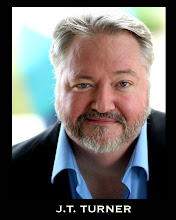I make my living mostly with my voice. Actor, singer, director, lecturer, teacher, voice over artist, almost all of my many titles involve me using my voice. yet I sometimes forget a simple rule all voice users should follow: WARM UP!
Just like an athlete who stretches, moves, engages the muscles they are about to use, so too should performers. It makes the voice stronger, clearer and more ready to work on whatever chore lies before it!
Not too long ago, I had a big speaking day. A company had asked me to combine 3 of my lectures into a one day event. I basically spoke from 9am till 4pm, with a 40 minute break for lunch. I was happy for the work, and it all went well, but by the end of the day my voice was exhausted. Adding to that tiredness was the fact that I had forgotten to warm up. Had I warmed up it would still be tired, but not the froggy craggy mess it was the next day.( As a side note, I did drink water during the day, which is what saved my voice from total failure).
So warming up is key for any performer. A singer will naturally warm up longer and more intensely, but we all should have a least a quick warmup ready to go.
Here are a few simple warmups to get your voice ready. Do them all gently and gradually.
1- Yawn- A big giant yawn, At the peak of it as you mouth is open wide give a nice 'ahh" sound to it. relax the mouth and throat muscles.
2-Hum- Hum lightly, near the front of your mouth near the lips. try and make your lips and the area in front of your teeth vibrate.
3- Keen- Start with as high a note as you can get in your register. Then, on a relaxed "ahh", let your voice drop through your range to as low a sound as you can make. Do this a few times. ( Especially good for men to keep your voice from cracking in an audition).
4- Chew- Make the "Nnnnnnnnnn" sound, and chew it around your mouth, right side, left side, front and back.
5- Tongue twisters/ Tough phrases- Try some of the tongues twisters that work out your mouth.
"Red leather, yellow leather". Try that a few times, as fast as you can.
Or "Moses supposes his toe-es are roses but Moses supposes erroniously. For Moses he knowes his toe=es aren't roses, as Moses supposes his toe-es to be".
"The tip of the tongue, the lips, the teeth."
"Sister Sue sold sea shells, she sold sea shells there by the shore. Sure, she sold shells by the seashore, she sold seashells there by the score.".
And a very popular and tricky vocal warm up is the Announcer's Test. It really gets your mouth and memory going, and wakes up your lips! Try saying this in order, many actors memorize all ten portions:
One hen.
One hen; two ducks.
One hen; two ducks; three squawking geese.
One hen; two ducks; three squawking geese; four Limerick oysters. One hen; two ducks; three squawking geese; four Limerick oysters; five corpulent porpoises.
One hen; two ducks; three squawking geese; four Limerick oysters; five corpulent porpoises; six pairs of Don Alversos tweezers.
One hen; two ducks; three squawking geese; four Limerick oysters; five corpulent porpoises; six pairs of Don Alversos tweezers; 7,000 Macedonians in full battle array.
One hen; two ducks; three squawking geese; four Limerick oysters; five corpulent porpoises; six pairs of Don Alversos tweezers; 7,000 Macedonians in full battle array; eight brass monkeys from the ancient sacred crypts of Egypt.
One hen; two ducks; three squawking geese; four Limerick oysters; five corpulent porpoises; six pairs of Don Alversos tweezers; 7,000 Macedonians in full battle array; eight brass monkeys from the ancient sacred crypts of Egypt; nine apathetic, sympathetic, diabetic old men on roller skates with a marked propensity toward procrastination and sloth.
One hen; two ducks; three squawking geese; four Limerick oysters; five corpulent porpoises; six pairs of Don Alversos tweezers; 7,000 Macedonians in full battle array; eight brass monkeys from the ancient sacred crypts of Egypt; nine apathetic, sympathetic, diabetic old men on roller skates with a marked propensity toward procrastination and sloth; 10 lyrical, spherical, diabolical denizens of the deep who hall stall around the corner of the quo of the quay of the quivery, all at the same time
In a pinch, I often warm up on the way to a gig or audition by simply reading signs and license plates aloud. Simple, low tech and it works.
Stay warm!
J.T. Turner
The Actor's Sensei
Need coaching or lessons? Audition prep? Drop me a line at
jtactor@aol.com
 Oh spring seems to be pushing it's way into our lives here in the Northeast. So perhaps a blog about some growth?
Oh spring seems to be pushing it's way into our lives here in the Northeast. So perhaps a blog about some growth?











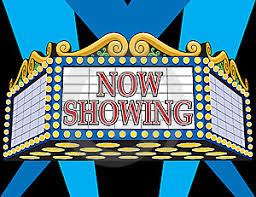



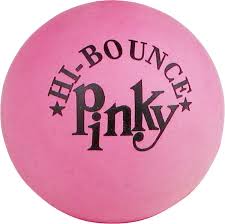

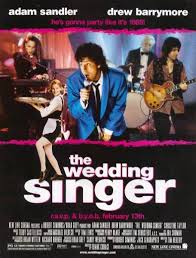







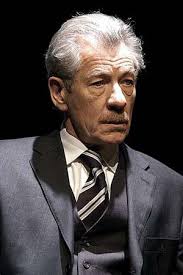





 Ok I left my last blog as a cliffhanger, like a 1930's weekly serial. When last we visited the Actor's Sensei, he was teaching his minions a great method of memorizing lines. But for many actors and speakers, there is an odd occurance. Every time you try to say your lines, you get stuck at exactly the same spot. Time and time again. This is usually the scene...
Ok I left my last blog as a cliffhanger, like a 1930's weekly serial. When last we visited the Actor's Sensei, he was teaching his minions a great method of memorizing lines. But for many actors and speakers, there is an odd occurance. Every time you try to say your lines, you get stuck at exactly the same spot. Time and time again. This is usually the scene... In fact it just reinforces the forgetful moment, as you are making a new, bold memory around it. Its like the Forget Monster jumps out, you buy it dinner and take it to a movie. So first rule, when you get stuck, don't berate yourself. Just correct and go on if you can.If you are at a rehearsal and forget a line, just ask for it, without a 20 minute scene of apology.
In fact it just reinforces the forgetful moment, as you are making a new, bold memory around it. Its like the Forget Monster jumps out, you buy it dinner and take it to a movie. So first rule, when you get stuck, don't berate yourself. Just correct and go on if you can.If you are at a rehearsal and forget a line, just ask for it, without a 20 minute scene of apology.










